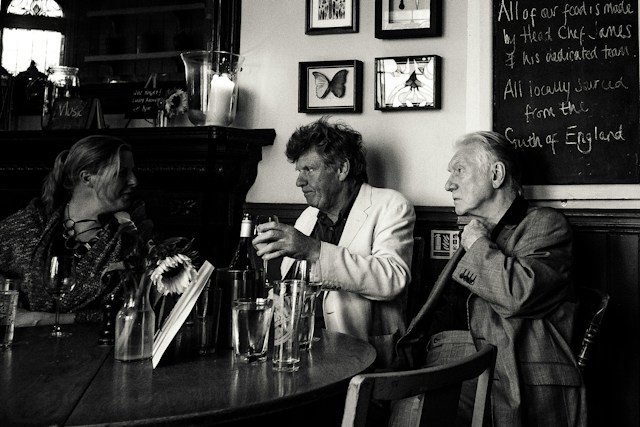At a networking event in London I met a group of people, and we went to “the Alchemist” bar together. Of course, some drinks were involved.
One of the guys – let’s call him Harry – chatted up two women at a table nearby, and soon myself and two other gentlemen followed.
Harry and one of the women were engaged in dialogue. I started to listen to it, and soon the dialogue turned to Harry saying things like: “Nothing what you say matters to me, I am calm.”
From what I gathered, Harry felt that she was accusing him of lying.
The woman herself was saying things like: “You’re putting on a mask”.
They started to go in circles, repeating each other’s statements, in some ways trying to prove their individual points.
After about ten minutes of this or so, the woman asked her companion to leave – they switched to another table.
Harry turned to myself and continued to explain that he loves women, and that he was telling her the truth – that he is one of the most honest people, etc.
I told him to let it go, and that of course I know and he knows that he is speaking the truth. But that some people perceive things differently, and that it’s a waste of energy to try to prove otherwise to them.
I’ve observed this a couple of times now, when two people get locked in an argument – often it’s about certain patterns and pain points being triggered, and people trying to avoid the pain they experienced in the past.
A while ago, I wrote the blog post “How does not getting triggered look like?“. Imagine, how different the conversation might have been if that woman and Harry would have lacked the individual triggers – maybe they might have laughed the misunderstanding off, and might have made some new friends that evening.
Every perception is a gamble. And it is based on our past, very much so. Letting go of pain involves letting go of a painful past through imagining a more balanced present and future.
How to get rid of these triggers?
A wonderful tool to get rid of these triggers is the emotional processing tool (by Thais Gibson). Used consistently, it will help you to see that humans perceive information in their own particular way. You don’t need other humans to be a certain way to be happy. You don’t need to prove your innocence – remember, these people are not your parents and they don’t hold the same kind of power over you as once your parents had.
Photo by Andrei Ianovskii on Unsplash
